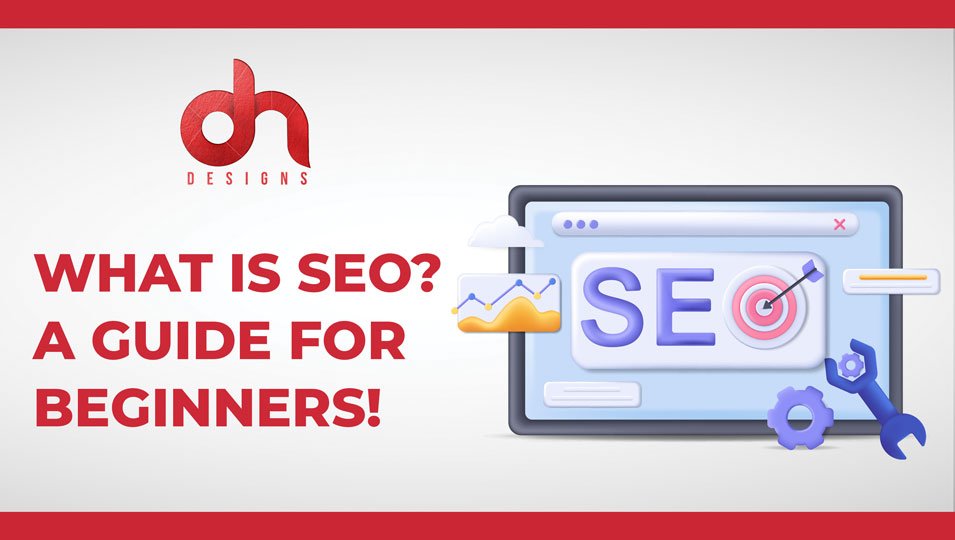SEO is short for Search Engine Optimisation. It is the most common way of working on a site’s positioning on search engine result pages (SERPs) by improving the site or site pages being referred to. Making a site more relevant and attractive to clients and web search tools is the aim of SEO services. Which intends to support natural (organic) traffic to a site.
At the point when customers type search questions, web search tools like Google use refined algorithms to assess the visibility and worth of online sites. To make a site’s substance, structure, and different highlights viable with these algorithms and increment its possibilities seeming higher in query items, Search engine optimization requires various methodologies and techniques.
What Is On-Page and Off-Page SEO?
Both on-page and off-page improvements are remembered for Search engine optimization. To make a site more client and web-search tool-friendly, on-page improvement focuses on improving perspectives inside the site, for example, page names, meta depictions, headers, and content. The objective of off-page streamlining is to expand the site’s position and believability according to search engines. This is finished by participating in exercises like third party referencing, social media marketing, and online reputation management.
Organizations might work on their natural openness, get more designated guests, and at last lift changes, leads, and pay by instituting great SEO services. Staying aware of changes to web search tool algorithms and moving client conduct includes persistent observation, investigation, and adaptation of the SEO process.
How Might You Lift Your Business Development with SEO: A Beginner’s Aide
Having a decent web-based presence is fundamental for organization outcome in cutting edge computerized time. Search Engine Optimisation (SEO) is fundamental for expanding the perceivability of your site and creating natural traffic for your internet based store. This novice’s instructional exercise means to give you a simple handle of Search engine optimization and arm you with implementable strategies to speed up the development of your organization. You can work on your site’s openness, attract greater quality leads, and, at last, increment transformations and pay by setting SEO services and strategies in motion.
Here are a few vital activities you can do to utilize SEO services to work on your business:
Keyword Research:
Direct top to bottom keyword research to view as exceptionally looked for terms that are applicable to your business’ merchandise, administrations, or area. To find beneficial keywords with a decent mix of search traffic and intensity, use keyword research devices.
On-Page Improvement:
Further develop the on-page parts of your site to make it more interesting to web search tools. This incorporates streamlining the text, headers, URLs, page names, and meta portrayals. Guarantee that your material is significant and engaging for your crowd while naturally including appropriate watchwords into it.
Content Creation:
Make convincing, sagacious, and great material that addresses the needs and necessities of your main interest group. To offer some incentive and draw natural guests, formulate a substance technique that joins blog entries, articles, recordings, infographics, and different media. Add shareable parts and watchwords to your work to build its perceivability and crowd.
Specialized search engine optimization:
Ensure your site is appropriately optimized for web search tools (specialized SEO services). This incorporates improving versatility and responsiveness, and organizing information markup execution. Site speed and execution improvement, and right ordering and creeping utilizing XML sitemaps and robots.txt documents.
External link establishment:
Get top caliber, pertinent, and legitimate backlinks from dependable sites to lay out a strong backlink profile. Use visitor writing for a blog, powerhouse outreach. Furthermore, satisfied showcasing to create top notch backlinks that raise the power and perceivability of your site in list items.
Neighborhood Search engine optimization:
In the event that you own a nearby organization, make it more noticeable in neighborhood look. To build your perceivability in nearby query items, make and improve your Google My Business page. Ensure your rest (Name, Address, Telephone Number) is steady across online indexes, advance client audits, and utilize nearby reference building.
Investigation and following:
To screen and evaluate your SEO endeavors, set up web investigation programs like Google Examination and Google Search Control Center. Observing catchphrase positions, natural traffic, and client conduct. Also, changing rates will assist you with pinpointing trouble spots and measuring how well your SEO drives are working.
Client Experience (UX) Improvement:
Center around conveying an incredible client experience on your site utilizing client experience (UX) streamlining. Ensure the plan is engaging, the route is straightforward, and the page stacks rapidly on cell phones. To increment client satisfaction, consider components like Center Web Vitals, website construction, and ease of use. Web search tools likewise give inclination to sites that give an incredible client experience.
Remain Refreshed:
Keep awake to speed on the most up to date Website design improvement patterns, calculation changes, and best practices. Being educated will assist you with altering your methods and keep you one stride in front of the opposition in the steadily changing domain of SEO.
These SEO services will assist you with further developing your site’s openness on the web, attract more qualified natural guests, and produce more leads and deals, all of which will assist your business with flourishing.







